Bitter Gourd – Seeds
Note: Images are for reference purposes only. Actual product may vary in shape, height, appearance depending on climate & age etc.
₹ 55.00 Original price was: ₹ 55.00.₹ 50.00Current price is: ₹ 50.00.
Out of stock
The Bitter Gourd Plant (Momordica charantia), also known as Bitter Melon or Karela, is a unique and highly nutritious vegetable that adds a distinct, slightly bitter flavor to your culinary creations. With its vibrant green vines, bright orange fruits, and an array of health benefits, the Bitter Gourd Plant is a great choice for gardeners seeking to grow both a functional and ornamental plant.
Bitter gourd is renowned for its detoxifying properties, as well as its ability to lower blood sugar levels, making it a popular vegetable in Asian, African, and Caribbean cuisines. Whether you’re using it in traditional dishes, preparing it as a juice, or consuming it for its health benefits, the Bitter Gourd Plant is a must-have in any garden.
Key Features of the Bitter Gourd Plant:
- Unique and Nutritious Fruit: The Bitter Gourd Plant produces long, green, spiny fruits that mature into bright orange melons. These fruits have a distinctively bitter flavor, which is prized in many dishes, from stir-fries and curries to juices. The plant’s fruits are rich in vitamins A, C, and iron, as well as antioxidants, and they have been linked to lowering blood sugar, improving digestion, and detoxifying the body.
- Health Benefits: Bitter gourd is often hailed for its medicinal properties. It is known to help regulate blood sugar, making it a key part of the diabetic diet. Additionally, it has been used to boost immunity, improve liver function, and promote better digestion. The fruit is also rich in fiber and water content, which aids in maintaining a healthy digestive system.
- Space-Efficient Vines: Despite being a vining plant, the Bitter Gourd grows well in small spaces, as it can be grown vertically with a trellis or support structure. This makes it ideal for those with limited gardening space or for urban gardeners looking to grow fresh produce.
- High Yield: Bitter gourd plants are highly productive. With proper care, a single plant can yield numerous fruits throughout the growing season, giving you a steady supply of fresh, bitter gourds for cooking, juicing, or preserving. The plant is also self-pollinating, meaning it can produce fruit without needing cross-pollination from another plant.
- Easy to Grow: The Bitter Gourd Plant is relatively easy to grow and can be cultivated in garden beds, containers, or raised beds. It thrives in warm climates and needs only basic care to produce an abundance of fruits. It’s perfect for gardeners of all experience levels, especially those who want to grow healthy, fresh vegetables at home.
Care Instructions for Bitter Gourd Plant
Light: The Bitter Gourd Plant requires full sun to thrive. Ensure that the plant gets at least 6-8 hours of direct sunlight per day for optimal growth and fruiting. In cooler climates or indoor gardens, use grow lights to supplement the natural sunlight.
Watering: Bitter gourd plants need consistent moisture but do not like to sit in waterlogged soil. Water the plant deeply to ensure the roots receive enough hydration, but allow the soil to dry out slightly between waterings. In hot weather, you may need to water more frequently. Be careful not to overwater, as this can lead to root rot.
Soil: Bitter gourd thrives in well-draining, loamy soil rich in organic matter. A slightly acidic to neutral pH (6.0-7.0) is ideal. The plant prefers slightly fertile soil that has good drainage to prevent water from accumulating around the roots. If planting in containers, use a high-quality potting mix that drains well.
Temperature: Bitter gourd is a warm-season plant that thrives in temperatures between 70°F and 95°F (21°C to 35°C). It is sensitive to frost and will not grow well in cold climates. If growing in cooler regions, consider starting your plant indoors and transplanting it outdoors once the weather is consistently warm.
Fertilizing: Bitter gourd is a heavy feeder and benefits from regular fertilization during the growing season. Use a balanced, organic fertilizer with a ratio of NPK (nitrogen, phosphorus, and potassium), or a compost-rich soil for optimal growth. Fertilize the plant once every 4-6 weeks and apply a slow-release fertilizer to ensure the plant has a steady supply of nutrients.
Pruning and Support: Bitter gourd is a vining plant and will need a trellis, fence, or support system to climb on. As the vines grow, you can prune away side shoots and weakened growth to encourage stronger production of fruits. This will also help improve airflow around the plant, reducing the risk of fungal diseases.
Harvesting: Bitter gourd fruits should be harvested when they are fully mature, which means they have turned yellow-orange in color. For the best flavor and nutritional content, it is best to harvest the fruits before they over-ripen. Regular harvesting encourages the plant to produce more fruits. For culinary use, pick the fruits when they are still green, and allow them to ripen later if you intend to store them or use them in specific dishes.
Frequently Asked Questions (FAQ)
Q: How long does it take for Bitter Gourd to mature?
A: Bitter gourd typically takes 50-60 days to reach maturity from planting, depending on the growing conditions. The fruits will ripen in about 60-80 days after sowing and can be harvested once they turn yellow-orange in color.
Q: Can I grow Bitter Gourd in a pot?
A: Yes, Bitter Gourd can be grown in pots or containers as long as they are large enough to support the plant’s roots and vines. Choose a pot that is at least 12-18 inches deep with good drainage, and provide a trellis or support structure for the plant to climb on.
Q: How often should I water my Bitter Gourd plant?
A: Bitter Gourd requires regular watering, but the soil should be allowed to dry out slightly between waterings. Water deeply to ensure the roots are adequately hydrated, but avoid overwatering, which can lead to root rot. Water in the early morning to prevent moisture buildup in the evening.
Q: What should I do if my Bitter Gourd plant is not producing fruit?
A: If your plant isn’t producing fruit, ensure it is getting enough sunlight (at least 6-8 hours per day). Bitter gourd plants also require warm temperatures (between 70°F and 95°F) to produce fruit. Additionally, ensure the plant is receiving enough fertilizer and is properly supported by a trellis or vine structure.
Q: Can I eat Bitter Gourd raw?
A: While you can eat young, tender Bitter Gourd raw, its strong bitterness might not be to everyone’s taste. Many people prefer to cook Bitter Gourd by stir-frying, boiling, or making it into a juice. Cooking can help reduce some of the bitterness, making it more palatable for consumption.
| where-to-grow | Balcony, terrace or garden |
|---|---|
| time-till-harvest | 8 weeks |
| season | Summer |
| 5 |
|
0 |
| 4 |
|
0 |
| 3 |
|
0 |
| 2 |
|
0 |
| 1 |
|
0 |
Only logged in customers who have purchased this product may leave a review.
All the orders will be dispatched within 4-6 working days. Most of the orders are delivered within 4-5 working days from the date of shipping. All orders will be dispatched at the beginning of the week. These may be subject to change in special circumstances, such as public holidays, festive seasons and in case of high orders.

The plants may look a little dull due to transit stress. Exposure to the sun and proper watering will restore the plants to their natural health.

Related Products
Note: Images are for reference purposes only. Actual product may vary in shape, height, appearance depending on climate & age etc.
Out of stock
Note: Images are for reference purposes only. Actual product may vary in shape, height, appearance depending on climate & age etc.
Out of stock
Note: Images are for reference purposes only. Actual product may vary in shape, height, appearance depending on climate & age etc.
Out of stock
Note: Images are for reference purposes only. Actual product may vary in shape, height, appearance depending on climate & age etc.
Out of stock


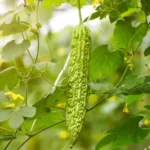
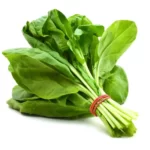
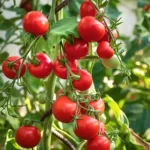
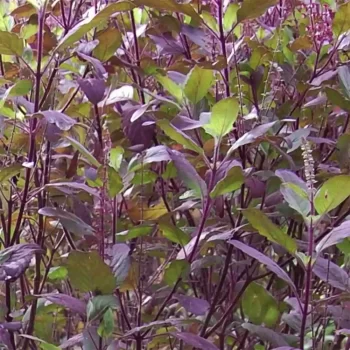

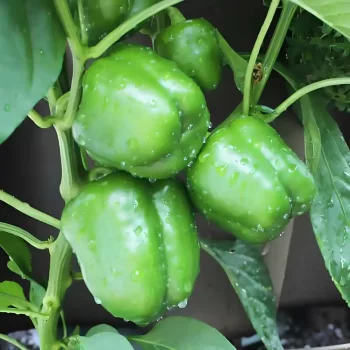


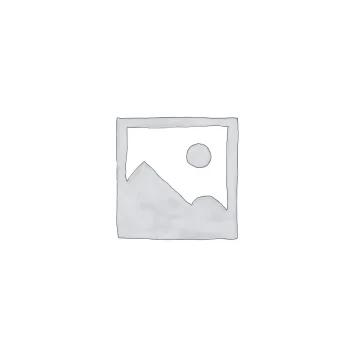
Reviews
There are no reviews yet.